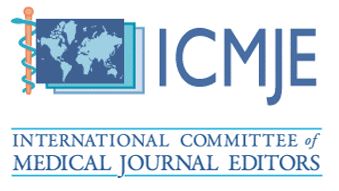The Oncolytic Viral Activity of SARS-CoV-2
Abdullah M. Basher1* and Omar Alfarouk Alsayed1
1 Department of Microbiology, Faculty of Science, Ain Shams University, Egypt.
*Corresponding Author: Abdullah M. Basher, Department of Microbiology, Faculty of Science, Ain Shams University, Egypt.
DOI: https://doi.org/10.58624/SVOAMB.2024.05.042
Received: May 08, 2024 Published: June 17, 2024
Abstract
The expanding domain of biotechnology has fostered the development of genetically modified viruses as pivotal players in advanced therapeutic strategies. Among these, oncolytic virus (OV) therapy has emerged as a promising avenue in cancer treatment. This review explores the feasibility and potential mechanisms underlying the utilization of a genetically engineered SARS-CoV-2 variant as an oncolytic agent. We propose that a modified SARS-CoV-2, engineered for reduced virulence, could be employed as a therapeutic tool against cancer. Mechanistically, upon infection, SARS-CoV-2 can activate the immune system, triggering an anti-tumor response through various pathways such as NK cell activation, molecular mimicry, and viral entry via ACE-2/NRP-1 receptors. Additionally, the downregulation of inhibitory molecules on NK cells post-infection further enhances anti-tumor activity. We elucidate the process of engineering modified SARS-CoV-2 utilizing a reverse genetic system, highlighting the safety measures necessary for its preparation. Moreover, we discuss strategies for retargeting coronavirus to enhance oncolytic efficacy, focusing on modifications to viral surface proteins. Clinical evidence supporting the potential of SARS-CoV-2-induced tumor regression is presented, including cases of spontaneous remission following COVID-19 infection or vaccination. These observations underscore the need for further investigation into the immunological mechanisms driving tumor regression post-SARS-CoV-2 infection. In conclusion, harnessing the therapeutic potential of genetically modified SARS-CoV-2 as an oncolytic virus represents a promising frontier in cancer therapy. By elucidating the underlying mechanisms and leveraging novel biological treatments, such as immune checkpoint inhibitors, may lead to tailored and effective cancer treatments with reduced side effects.
Keywords: SARS-CoV-2; Oncolytic virus; Cancer therapy; Biotechnology; ACE-2/NRP-1.
Citation: Basher AM, Alsayed OA. The Oncolytic Viral Activity of SARS-CoV-2. SVOA Microbiology 2024, 5:2, 39-48. https:// doi.org/10.58624/SVOAMB.2024.05.042











